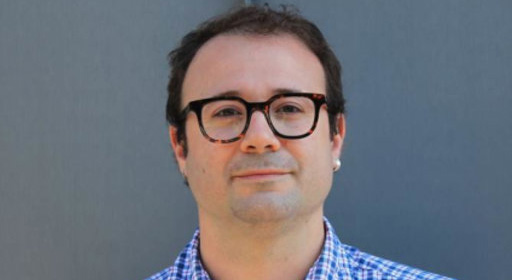“Work hard, follow your interest and never surrender!”
Interview with group leader Jordi Guiu
After 6 years at BRIC (Jensen group) Jordi Guiu has been giving a PI position at Bellvitge Institute for Biomedical Research (IDIBELL) in Barcelona. Despite major accomplishments during his time as a postdoc - such as receiving the Marie Curie Fellowship and publishing in Nature - he does not view his career as an unbroken string of success or his way to a PI position as something written in stone from the beginning. In this interview he reflects on his new research programme, his way from PhD to group leader and his philosophy of never giving up.

Stem cell research: Enhancing treatment for surviving cancer patients
Rooted in his work at BRIC, studying intestinal stem cells and regeneration, the future research in Guiu group aims to enhance stem cell therapy for patients who suffer from side effects of cancer treatment.
“For many years there has been a lot of focus on curing cancer diseases, and because of this more and more cancer patients survive. However, these large cohorts of surviving patients suffer from side effects of for instance radiation therapy in the intestine, and this is now becoming an important medical problem”, says Jordi Guiu, group leader at IDIBELL.
The primary function of the intestine is the digestion and absorption of nutrients through the mucosa. The mucosa in the adult intestine is lined with epithelium, which is a tissue that nutrients is absorbed through, and this tissue is maintained by intestinal stem cells. However, this process can suffer damage when exposed to radiation therapy.
Radiation therapy is a common treatment used in at least 50% of cancer patients and despite its efficiency in eradicating cancer, it induces intestinal toxicity. Radiation triggers apoptosis (cell death), hindering cell growth, and this damages the intestinal mucosa and in turn results in an inflammatory response. The main features are initially an acute damaging of the mucosa and at later stages a formation of permanent scar tissue on the intestinal wall. Jordi’s main goal is to develop a better understanding of the mechanisms triggering these processes in order to develop therapeutics and enhance intestinal regeneration.
To address this issue Guiu group will work in the newly created ‘Program for advancing the Clinical Translation of Regenerative Medicine of Catalonia’ (P-CMR[C]). In this program, Jordi and his group will study the cellular and molecular mechanisms involved in epithelial recovery after radiation injury. Furthermore, the aim is to study the establishment of the chronic radiation-induced inflammation in the small intestine, with a particular focus on the interaction between epithelial cells and immune cells.
If everything goes as planned Jordi will be able to begin this new chapter of his career 1 October 2020. Jordi is originally from Catalonia, and has now moved to Barcelona with his wife and two kids.
You have to try many times!
Always being very focused on his current research projects, Jordi did not have a PI-plan from the get-go.
“I am always very focused on the step that I am doing at the moment. Basically what I like is science”, says Jordi Guiu, group leader at IDIBELL.
In the beginning Jordi did not thought too much about achieving a PI position, but as he was finishing as a postdoc it became clear, that the best way to stay in research and continue his work, would be to strive for the PI position.
Talking to Jordi, he states that he enjoyed every different career step, from PhD to PI, but despite his major accomplishments, his career has not been an unbroken string of successes. Following his fascination with the processes of stem cell specification during development through his PhD and postdoc, Jordi lived by the rule of never giving up:
“I applied to every single fellowship in Denmark and I didn’t get anything. But after trying many, many times I got the Marie Curie. You have to try many times –and also you learn along the way”, says Jordi Guiu, group leader at IDIBELL.
The surrounding environment of BRIC
Besides learning from his continuously efforts, Jordi stresses that the surrounding environment of BRIC, and the excellent mentoring of his former group leader Kim Jensen, helped him on his way to achieving the PI position. At BRIC, Jordi participated several times in the course ‘From postdoc to PI’ and he attended the EMBO lab management course in 2018, learning about management and leadership skills.
As a group leader now ready to implement these skills, Jordi finds it important to understand the diversity of his research group. Not everyone wants to achieve the same, and this is something Jordi learned from Kim Jensen. Therefore, working as a group leader Jordi aims to guide each person in the group based on his/her individual goals or ambitions.
For Kim Jensen, having worked with Jordi for 6 years at BRIC, it is a great satisfaction to see Jordi take up his new position:
“Jordi has been an instrumental part of my team during the last years, and it has been a pleasure to work with him and to watch him grow as a researcher taking on more and more responsibility in my team. It will be exciting to follow his future career and the line of research he will be pursuing”, says Kim Jensen, group leader at BRIC.
During the process of applying for positions, Kim and Jordi often discussed potential projects that Jordi could pursue with his own team that was distinct from what Jensen lab did but still based on the expertise Jordi acquired at BRIC. Kim Jensen stresses that, If researchers in his team, like Jordi, wish to pursue an independent research career, he sees it as one of his prime tasks to help cast a niche for them to use as a basis for their future research programme without them fearing competition from Jensen lab.
